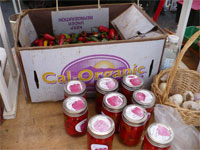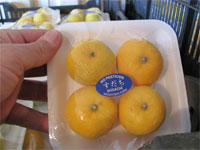- Agricultural Commissioner
- About Us
- FAQs
- Funding
- How We Are Funded
- County General Fund
- Pesticide Use Reporting
- Oak Death Inspection
- Pierce’s Disease Control
- Pierce’s Disease Nursery Treatments
- Organic Crops Program
- Seed Inspection
- Nursery Inspection
- Farmers Market Inspection
- Land Use Planning
- Pest Control Business Registrations
- Citrus Maturity Inspection
- Programs
- How We Spend Our Time
- Pest Detection and Eradication
- Citrus Inspection and Commodity Regulation
- Pierce’s Disease Control
- Pest Exclusion and Plant Quarantine
- Seed Inspection
- Nursery Inspection
- Farmers Market Inspection
- Egg Quality Control
- Apiary Inspection
- Crop Statistics
- Pesticide Use Enforcement
- NPDES MS4 Permit Compliance Inspections
- Land Use Planning
- Toland Landfill Project
- Weights & Measures
- FORMS/DATA
- Notices
- APAC
- SALC GRANT
- Crop Reports
- Contact Us
- Agricultural Commissioner
- About Us
- FAQs
- Funding
- How We Are Funded
- County General Fund
- Pesticide Use Reporting
- Oak Death Inspection
- Pierce’s Disease Control
- Pierce’s Disease Nursery Treatments
- Organic Crops Program
- Seed Inspection
- Nursery Inspection
- Farmers Market Inspection
- Land Use Planning
- Pest Control Business Registrations
- Citrus Maturity Inspection
- Programs
- How We Spend Our Time
- Pest Detection and Eradication
- Citrus Inspection and Commodity Regulation
- Pierce’s Disease Control
- Pest Exclusion and Plant Quarantine
- Seed Inspection
- Nursery Inspection
- Farmers Market Inspection
- Egg Quality Control
- Apiary Inspection
- Crop Statistics
- Pesticide Use Enforcement
- NPDES MS4 Permit Compliance Inspections
- Land Use Planning
- Toland Landfill Project
- Weights & Measures
- FORMS/DATA
- Notices
- APAC
- SALC GRANT
- Crop Reports
- Contact Us
Organic Crops Program


The California Department of Food and Agriculture provides a small contract with the county Agricultural Commissioner for the enforcement of Organic Food Law and the Registration of Organic Growers. Growers who wish to register as an organic producer pay a fee to the state with the application. The application is processed by the Agricultural Commissioner’s office which includes a required record check of pesticide use. In order to be certified as organic a grower must not have used any agricultural chemical that is prohibited by the National Organic Program for the past three years. The operation must also be certified by a USDA approved third party organization if its gross sales are $5000 or more annually. Once the grower is certified he can market his commodities as “certified organic”. Some growers may advertise that their produce is “pesticide free”, or some other similar claim, when selling at a Farmer’s Market. It is important to know that these claims are not verified by any government entity and may or may not be true. They definitely do not mean that the produce is organic or “certified organic”.
Complaints received by CDFA or the Agricultural Commissioner regarding organic produce are investigated by agricultural Inspectors. If violations of the law are found our office may recommend that the state suspend or revoke the grower’s organic registration and certification. The grower may also be required to pay a fine by the CDFA.



